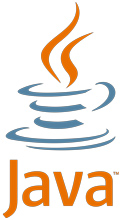
Java courses
- Java Essentials
Sorry, we currently do not have any public courses scheduled for the Java level 1 course. Please contact us to see if we can put one on the schedule for you
Sorry, we currently do not have any public courses scheduled for the Java level 1 course. Please contact us to see if we can put one on the schedule for you
Java Essentials
Course Description
Java is a simple, object-oriented, network-savy, interpreted, robust, secure, architectural-neutral, many portable, high performance, multi-thread, dynamic computer language. Java is a programming language and computing platform. There are lots of applications and websites that will not work unless you have Java installed, and more are created every day.
Java is fast, secure, and reliable. From laptops to datacenters, game consoles to scientific supercomputers, cell phones to the Internet, Java is everywhere! This course starts with the basics and covers core concepts required to be a productive Java developer.
Target Audience
Prerequisites
Java Essentials
Module 1: Getting Started
Module 2: Performing Operations
Module 3: Making Statements
Module 4: Directing Values
Module 5: Manipulating Data
Module 6 : Creating classes
Module 7: Importing functions
Module 8: Building interfaces
Module 9: Recognizing events
Module 10: Deploying programs
Our goal is to make sure your training meets your objectives, not ours. Therefore, all of our outlines are used as guidelines for particular courses. This outline does not guarantee that all the topics listed will be covered in the time allowed. The amount of material covered is based on the skill level of the student audience. We may change or alter course topics to best suit the classroom situation.
Sorry, we currently do not have any public courses scheduled for the Java level 2 course. Please contact us to see if we can put one on the schedule for you
Sorry, we currently do not have any public courses scheduled for the Java level 2 course. Please contact us to see if we can put one on the schedule for you
Sorry, we currently do not have any public courses scheduled for the Java level 2 course. Please contact us to see if we can put one on the schedule for you
Sorry, we currently do not have any public courses scheduled for the Java level 3 course. Please contact us to see if we can put one on the schedule for you


